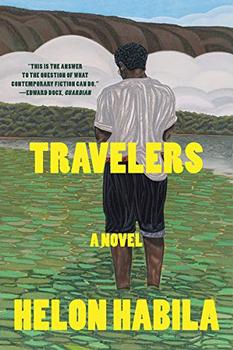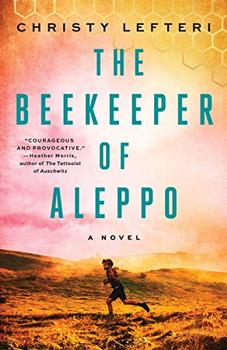Summary | Excerpt | Reviews | Beyond the book | Read-Alikes | Genres & Themes | Author Bio

Many of us probably remember the photograph of little Aylan Kurdi, a Syrian toddler, washed ashore on a beach in Turkey. That photo was published in September 2015, at the peak of the global refugee crisis (see 'Beyond the Book'). Europe braced itself to absorb millions of people, and by the end of 2015, Germany alone hosted a million refugees from many countries. Richard, the narrator of Jenny Erpenbeck's novel Go, Went, Gone, is a recently retired classics professor in Berlin who, without fully intending to, finds himself in the center of this geo-political upheaval.
At the book's outset, Richard is trying to adjust to retirement. He's unsure how to dress, how to think, and how to spend his time. One afternoon, while lost in his own thoughts, he walks right past ten African men, refugees who are staging a hunger strike in front of Berlin's Town Hall. Later that night, he is surprised by the news footage — those same refugees are now being interviewed on television. He registers that he must not have noticed them and wonders why.
Richard's ordered and careful life of shopping lists and gardening tasks moves to the sidelines as his interest in the refugees is piqued. He learns more information about them online. They come from Ghana, Sierra Leone, Niger, Mali, Ethiopia, Senegal, Burkina Faso… "Where exactly is Burkina Faso?" Richard wonders. He learns there are fifty-four countries in Africa. ("He had no idea.") When he discovers that some of the men are housed nearby, in an empty red-brick building owned by a nursing home, he decides to interview them. The story that unfolds from there embeds the refugees' narratives into his own.
The novel, seamlessly translated from German by Susan Bernofsky, is set near where Richard lives, in what was formerly communist East Berlin. Richard remembers the time before the Wall between East Berlin and West Berlin went up. Now, even though it is roughly twenty-five years since the Wall came down, he hasn't quite adjusted. He still feels fear when he is in the city. "His friends make fun of him because he still refuses to drive into the city center. Now that the Wall is gone, he no longer knows his way around. Now that the Wall is gone, the city is twice as big and has changed so much that he often doesn't recognize the intersections." Richard's memories of change in Berlin seem to feed the kinship he feels, almost immediately, with the refugees he meets.
One of the novel's strengths is its close narrative style. Richard ponders the nature of memory, signs, language, time, borders, and more. Richard's abstract explorations — "does meaning have mass?" — starkly contrast the more tangible and immediate questions the refugees ask: "Why can't I work? Where will I live?"
Richard asks carefully prepared questions of the refugees and tries to sort out their stories. He references the classics as he gives nicknames to the refugees — Apollo; Hermes; Tristan; and Rashid, "the Thunderbolt-hurler." These give Richard mental hooks so he can keep their stories straight, and they might help readers follow the characters as well. At times, the refugees ask Richard questions, and he often doesn't have answers. Soon, he isn't going to the red-brick building to interview African refugees, but to visit friends.
In Go, Went, Gone, Richard gives of himself, choosing to see, to better understand, and to sympathize with people who, on the surface, seem so different from himself. Through Richard, we have the opportunity to get to know people like Apollo who speaks Tamasheq, Hausa, Arabic, Italian, and French — in addition to the German he's learning. The new immigrants' stories make the abstraction of the refugee crisis more tangible. They remind us that borders are arbitrarily drawn lines of power and that we all belong to the same humanity.
![]() This review
first ran in the October 18, 2017
issue of BookBrowse Recommends.
This review
first ran in the October 18, 2017
issue of BookBrowse Recommends.

If you liked Go, Went, Gone, try these:

by Helon Habila
Published 2020
A startlingly imaginative exploration of the African diaspora in Europe, by one of our most acclaimed international writers.

by Christy Lefteri
Published 2020
This unforgettable novel puts human faces on the Syrian war with the immigrant story of a beekeeper, his wife, and the triumph of spirit when the world becomes unrecognizable.
Your guide toexceptional books
BookBrowse seeks out and recommends the best in contemporary fiction and nonfiction—books that not only engage and entertain but also deepen our understanding of ourselves and the world around us.